- Learning time
- 10 minutes
- First play time
- 40 minutes
Die Mauer
Designed by: Thomas Fackler
Die Mauer (The Wall) is a game of deduction and table-reading, where everyone is trying to be first to get rid of their wall pieces.
The players are collectively building a single wall on the table, and everyone starts with a collection of pieces – wall pieces of five different lengths, plus a gate and a tower. The starting player is the Master Builder, and they secretly choose one of their pieces to add to the wall. At the same time, all the other players choose a piece too – hoping to match the Master Builder -and everyone reveals simultaneously.
If no-one else has chosen what the Master Builder chose, they get to add their piece to the wall. If another (or several) players have guessed correctly, they get to add their pieces instead. Bear in mind, however, that there are building regulations to follow: gates and towers can’t go next to other gates or towers, so in a situation where not everyone who chose correctly can legally add pieces, it means nobody can!
There is another option for the Master Builder too – instead of selecting a piece, they can choose nothing (the empty fist) and if nobody else has gone for the empty fist, they can add any piece they like to the wall. If a single other player chose the empty fist, they get to pass the Master Builder a piece from their hand (secretly). If more than one opponent chose the empty fist, nothing happens.
A round ends as soon as one player is rid of all their pieces, and points (which are bad) are totted up for any pieces remaining in your hand. After one round per player (or however many rounds you agree on) the player with the lowest score wins.
The guru's verdict
-
Take That!
Take That!
Outside of the Empty Fist it's not a game where you can be targeted. The potential frustration is there, though, in the possibility of many turns passing by and no progress being made!
-
Fidget Factor!
Fidget Factor!
None, really. Everyone is involved in every turn.
-
Brain Burn!
Brain Burn!
Rules-wise it's very light. But it's worth keeping track - or attempting to - of who has played what as each round progresses. Players with good recall have a distinct advantage here!
-
Again Again!
Again Again!
Very simple, and one of those games that really is what the players bring to it.

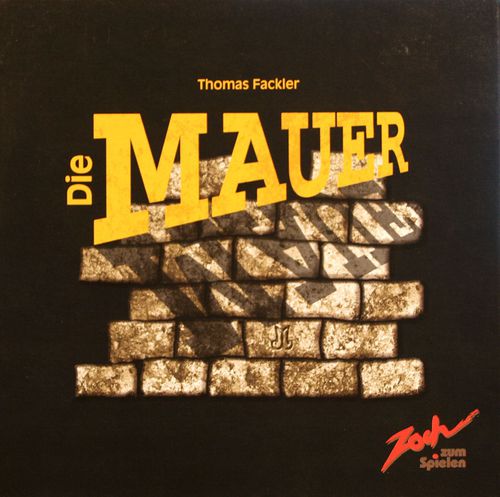



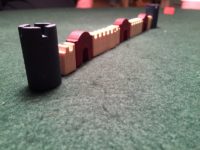
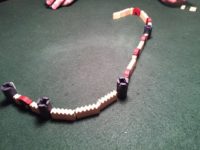



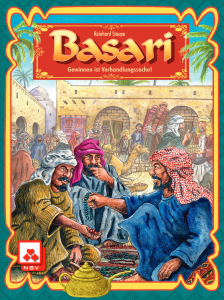

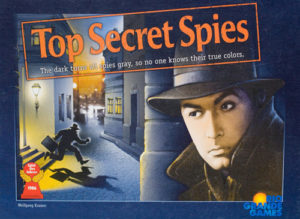

Sam says
I am hopeless at this. But I enjoy what's happening here: what starts out chaotically becomes, as each round progresses, much more about recall and table-reading (and the current state of the wall - don't forget those building regs!) as players are in ownership of fewer and fewer pieces and guessing what the Master Builder will play becomes increasingly - in theory! - more calculable. The wall itself looks rather pretty on the table too.